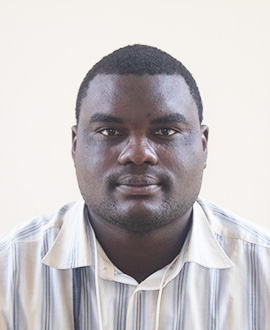Background
|
Research:
- Areas of interest:
Vector biology, Genetics, Insecticide resistance monitoring, Vector control products evaluation
Research – an overview of his research areas(s)
The increased access to insecticidal treated nets (ITNs) has significantly reduced malaria mortality in sub-saharian Africa by preventing more than 6 million of malaria cases. However, the effectiveness of this tool varies by regions due to the types of the nets used, the population behaviour and the increased level of resistance in vectors. My current work combined experimental Hut (EH) study and genomic analysis to help the malaria programme managers to develop a decision-making framework, giving that many active ingredients for ITNs existed and/or are in the pipeline.
- Research Areas:
| Impact of insecticide resistance using Experimental Hut trials (EHTs) and transcriptomic analysis |
- Within your department, are you a member research areas/groups
Wondji Research Unit (WoRu)
- If you are a supervisor list current and past PhD Students supervised
Line manager of 3 laboratory technicians :
– Inès Watsop
– Jalil Njimban
– Alvine Kamegne
|
OTHER RELEVANT EXPERTISE, PROFESSIONAL MEMBERSHIPS ETC
Mahob, R.J., Dibog, L., Ndoumbè-Nkeng, M., Begoude Boyogueno A.D., Fotso Toguem Y.G., Nyassé S. & Bilong Bilong C.F. 2020. Field assessment of the impact of farmers’ practices and cacao growing environment on mirid abundance and their damage under unshaded conditions in the southern Cameroon. International Journal of Tropical Insect Science. https://doi.org/10.1007/s42690-020-00124-9. |

